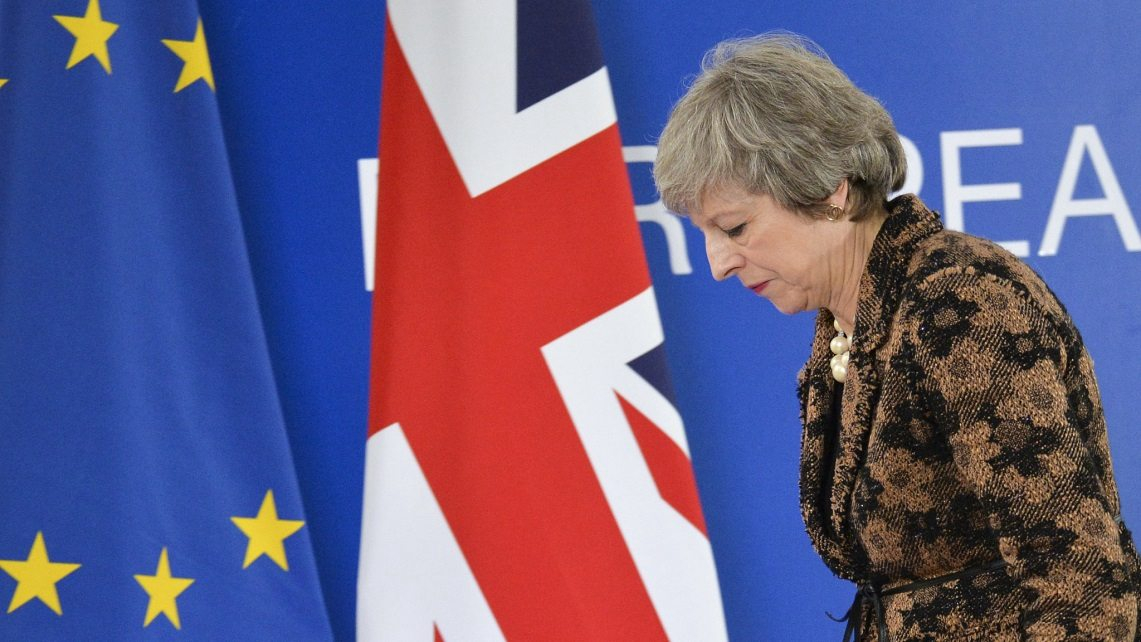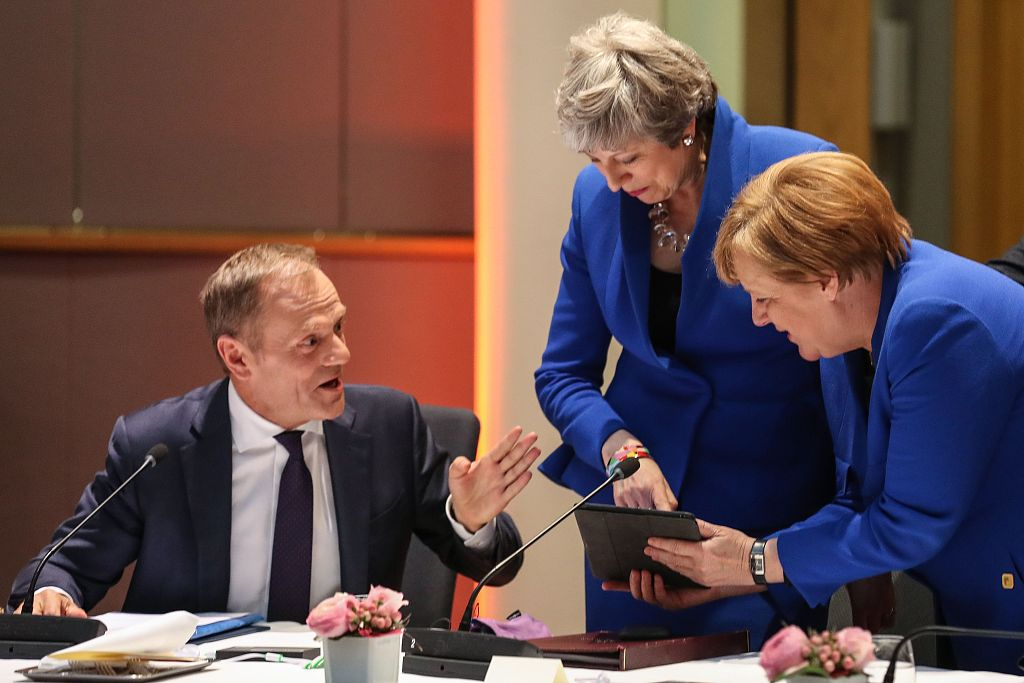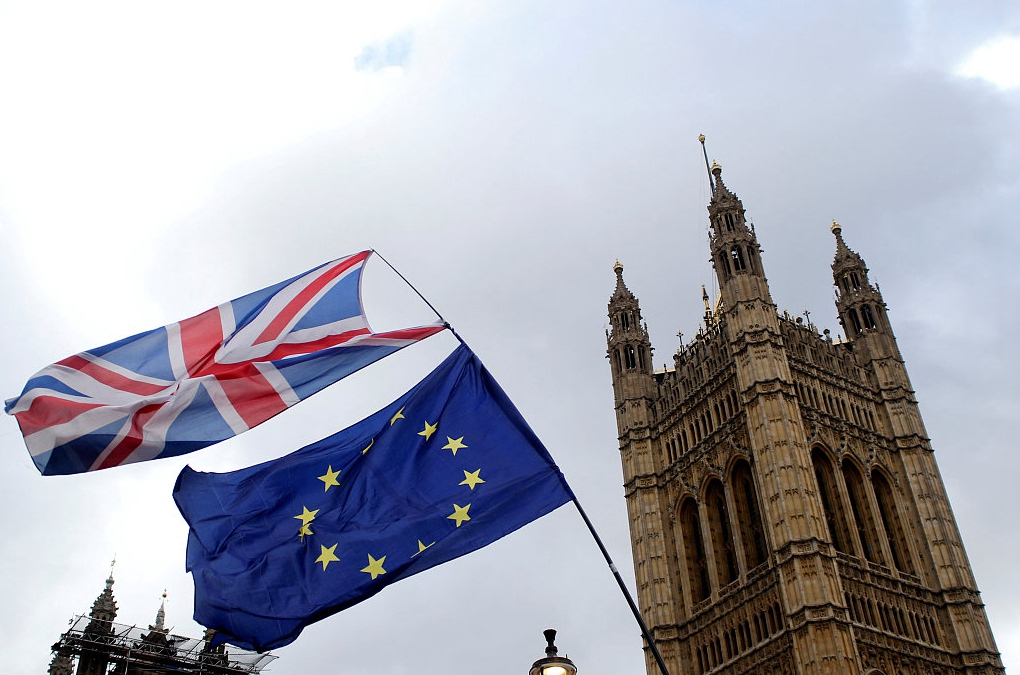
Opinion
10:02, 25-May-2019
Next British PM should heal rather than divide the country
Ji Xianbai

Editor's note: Dr. Ji Xianbai is a research fellow at the S. Rajaratnam School of International Studies, Nanyang Technological University, Singapore. He is also an associate fellow at the EU Center in Singapore. The article reflects the author's opinion, and not necessarily the views of CGTN.
At last, the besieged British Prime Minister Theresa May is leaving 10 Downing Street on June 7, nearly three years after voters narrowly decided to exit from the European Union (EU). Her premiership was meant to heal a deeply divided nation and steer a "global Britain" toward a "brighter future" outside of the EU.
The mission proved easier said than done. May failed to reunite her country, failed to legislate her Brexit deal, and failed to keep her job in the end. The current Brexit impasse is not her fault given such toxic political situation, but might well be remembered bitterly as her political legacy.
As May's time is up, a leadership contest within the ruling Conservative party is about to begin. Nominations are likely to start on June 10 and once closed Tory parliamentarians will vote in a series of rounds to whittle down the candidates to a final two. All party members will then get a chance to pick a preferred leader by the end of July to succeed May. The next leader is expected to wrap up the first phase of Brexit negotiations and bargain with Brussels on future EU-UK relations.
So far, contenders including former foreign secretary and London mayor Boris Johnson, ex-cabinet minister Esther McVey and incumbent international development secretary Rory Stewart have formally announced their intentions to run for the party leadership.

European Council President Donald Tusk (L), Britain's Prime minister Theresa May (C) and Germany's Chancellor Angela Merkel (R) attend a European Council meeting on Brexit in Brussels, April 10, 2019. /VCG Photo
European Council President Donald Tusk (L), Britain's Prime minister Theresa May (C) and Germany's Chancellor Angela Merkel (R) attend a European Council meeting on Brexit in Brussels, April 10, 2019. /VCG Photo
Among them, Johnson, the face of Leave campaign and a core member of the Eurosceptic European Research Group, is undoubtedly in a pole position in the upcoming contest. He has always been very popular with Tory back-benchers, and could have assumed office way back in 2016 if not for his right-hand man Michael Gove's surprising "betrayal" that derailed his earlier leadership bid. According to the latest ConservativeHome survey data, approximately one-third of Tory MPs said they would support Johnson as their next leader.
However, the fundamental problem is that, being a Trump-like political figure seemingly interested in appealing to only half of the country (that is eager to leave the EU), Johnson could exacerbate rather than mend the divisions in the UK. His ultra-hardline approach toward the EU also risks drastically increasing the likelihood of a no-deal, disorderly Brexit scenario with devastating consequences.
Like Johnson, McVey is firmly on the Tory Brexiteer wing. She voted in favor of Leave in the 2016 referendum citing the EU's democratic deficits, and quit May's cabinet in November 2018 in protest of her Brexit plan which allegedly binds the UK too close to the EU. As such, she advocates Britain withdrawing from the EU resolutely by October 31 "with or without a deal."
A vote for her could translate into a vote for "no-deal Brexit." McVey's leadership pitch as yet has shown strong traits of "Britain First" mindset, as for instance she proposes to cut foreign aid budget substantially to 2010 levels in order to channel more funds to domestic schools and hospitals. If she were to be elected as the country's third female leader, more nationalist, "nativist" policies could be forthcoming.

VCG Photo
VCG Photo
By contrast, Rory Stewart is a globalist and a fervent activist of foreign aid and international development. A former Harvard professor and diplomat who traveled over 6,000 miles by himself in Central and South Asia on foot, Stewart has been arguing to deliver Brexit along the lines set out in May's deal for a long time in public.
He defends the deal because in his opinion it is a pragmatic solution to the Brexit dilemma in the sense that it allows the country to leave the EU as instructed by the 17 million-leave-supporters while protecting the interests of the 16 million Remainers by forging a close economic relationship with the EU to minimize short-term disruptions.
More fundamentally, Stewart appears attempting to bring the country together by reclaiming the moderate, progressive center-ground politics in a way that neither Johnson nor McVey is trying as hard-line Brexiteers. Nevertheless, the chance of Stewart being selected is rather slim because it is difficult for his centrist Brexit agenda to command broad-based support in the predominantly eurosceptic Tory party.
Other senior Conservatives could join the race soon. But whoever wins the leadership ballot, the person must acknowledge that the country he or she is going to lead is a deeply divided one and the way forward should be to heal rather than to stoke further divisions over Brexit. Unfortunately, this might not be what Boris Johnson is good at.
(If you want to contribute and have specific expertise, please contact us at opinions@cgtn.com.)

SITEMAP
Copyright © 2018 CGTN. Beijing ICP prepared NO.16065310-3
Copyright © 2018 CGTN. Beijing ICP prepared NO.16065310-3